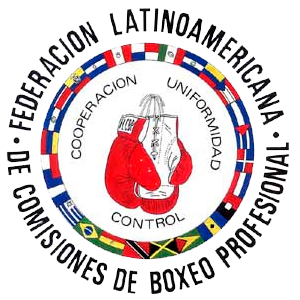By Dr. Raymond Monsell
M.D. Cardiff Wales U.K.
Medical officer to the Welsh Amateur Boxing Association
Member of Association of Ringside Physicians
March 2006 – The sport of boxing causes chronic brain damage, and is dangerous. Common sense suggests this is true, and statements made by eminent doctors over the years have now become accepted as scientific fact. Common sense also tells us the world is flat, and statements made over the years suggest the moon is made of cheese.
The problem that we have in understanding the true danger involved in the sport of boxing has been compounded over the time by selective editing of scientific facts, to provide a skewed misrepresentation of the risks involved in terms of boxers developing chronic brain damage.
Many of the scientific articles published have been compromised by a selection bias that results in any conclusions being largely irrelevant to modern boxing as a whole. In simple terms, if you take a group of boxers who clearly demonstrate evidence of chronic brain damage, and then use them as a study group to look for evidence of such brain damage, you are sure to come up with positive findings that attest to the dangers of boxing.
The British Medical Association published a booklet entitled “The Boxing Debate”. Contained within are graphic images of the severely damaged boxers brains, the suggestion being that this is what happens to all boxers. What they do not point out is that the study group were men who fought anything between 300 and 800 professional bouts, between 1900 and 1940. It is true that these men developed severe brain damage, which resulted in many ending their days subject to institutionalised care. The fact they died in asylums meant that their brains were readily available for microscopic examination. Tens of thousands of men also fought during this time, but their brains were never examined. If you look for brain damage in a group of brain-damaged men, you will come up with some convincing results.
A systematic review of all the available literature published in eminent medical journals shows some interesting facts. Much of the evidence cited to date has been derived from highly select study groups, such that the conclusions cannot be directly applied to the modern sport. The only statements that can be made with any degrees of certainty are as follows: There is no conclusive evidence that amateur boxing causes chronic brain damage. Some professional boxers will develop a chronic brain syndrome related to their exposure in the ring, as measured by number of losses and draws, but not necessarily number of fights.
Some doctors seek to have the sport of boxing banned, claiming to have “scientific proof”. This definitive proof is lacking, and much more needs to be done to delineate the true risks involved before boxing is banned on the grounds of supposed scientific evidence of chronic damage.
Unfortunately scientific fact, common sense, and folklore have become inextricably mixed together, such that many statements repeated over the years transcend from folklore to scientific fact, with no real proof.
Boxing is a dangerous sport. The risk of acute injury and death is ever present, as with any contact or collision sport. The risk of chronic damage is a separate issue, but the magnitude of risk has been exaggerated in some quarters to procure a ban.
In reality, boxing exists for two reasons alone. People want to box, and people want to watch them box. The fact that boxing as a sport is condoned is witnessed by the viewing figures for major fights, which attract tens of millions worldwide.
For many, boxing occupies the outer limit of morally acceptable behaviour. The intent to injure the opponent is to them abhorrent. If we as a society accept that boxing occupies this outer limit of what is morally acceptable, then it must be of equal concern to ask what would happen if boxing were banned. In time another sport would take its place at the edge of morality. Should this next sport then be banned for the same reasons? If we are to continually draw in the limits of moral acceptability then where do we stop? Ultimately society will decide that a given number of sports are acceptable in terms of risk, danger and moral probity. This is not a theoretical point in the future it is the situation now. Society has drawn the limits, and boxing falls within.
It is not for the medical profession to seek a ban on this basic freedom of expression, especially if the supposed scientific basis of their argument is fundamentally flawed.
Until the facts can be more clearly defined, the medical profession should not seek a ban on boxing by using moral arguments thinly veiled in selectively edited quotes from scientific studies not directly relevant to the modern sport.














